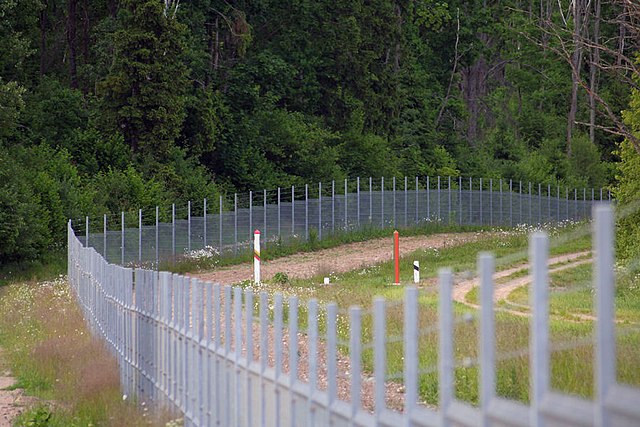Main Content
New Junior Research Group Researches Memories of Borders in Europe
Sociologist Vivien Sommer Receives Funding from DFG's Emmy Noether Programme

For a long time, Europe thought it was on the road to unification. Noticeable restrictions on mobility at intra-European borders were seen as a relic of the past. More recently, however, disruptive events such as the coronavirus pandemic and large-scale refugee movements have led to borders becoming more of an issue again. They were already present in the memories of people in border regions. From 2024, a new junior research group at the IRS will be investigating the "border memory" of the local population in four European border regions and exploring how it has been shaped over the course of history.
Sociologist Vivien Sommer has been approved by the German Research Foundation to set up a junior research group in the Emmy Noether Programme. The group will be based in the IRS Research Aentre "Economy and Civil Society". For an initial period of 36 months with the prospect of a further 36 months, the DFG is funding the research project "The Socio-Spatial Memory of European Borders: Dispositions of Remembering and Forgetting". Together with three doctoral students, Vivien Sommer will investigate how borders are remembered in society and what influence the memory of borders has on the current status of a supposedly borderless Europe.
After the Schengen Agreement, Europe's internal borders seemed to disappear. The agreement symbolised the continent's path to unity and integration. However, Europe's internal borders are not immune to disruption. Temporary border controls and even closures have made it clear that these national borders are by no means forgotten. The COVID-19 pandemic, for example, led to border closures in European regions and the reintroduction of traditional border controls. Disruptive events have a profound impact on how societies and spaces change. Whether it is the reorganisation of borders after the Second World War, the Cold War or the recent changes due to Brexit, disruptive events play a significant role in shaping our borders and border regions. This leads to a fundamental question: how do we remember these borders and what influence does this memory have on the concept of a borderless Europe?
Drawing on memory research and border studies, it becomes clear that unique cultural and ideational spaces persist on both sides of internal borders in Europe. These borders have developed through social memory, which has shaped socio-spatial knowledge and border practices. The project aims to understand how past disruptive events, such as wars, geopolitical conflicts and political unifications, have influenced the current state of borders. These past events are rooted in social memory, which is intertwined with the daily lives of the inhabitants of border regions.
So far, there is a lack of theoretical concepts that can capture the significance of the social memory of borders for the everyday lives of the inhabitants. The junior research group will close this gap with an innovative study on social memory in twin towns and twin villages in Europe. The project examines three dimensions of border memory - memory frames, memory practices and memory materiality - in twin towns and twin villages at four different borders of nations that are part of the Schengen area: the Polish-German border, the Swiss-German border, the Danish-German border and, as a contrast, the Irish-Northern Irish border.
The research group, led by Vivien Sommer, will pursue a multi-perspective methodological approach that combines expert interviews with memory activists, mental maps of the borders as well as narrative interviews and walks with residents. The data will be analysed using a multimodal coding method. In addition, cartographic maps will be created in local archives and interactive digital maps will be produced. The project aims to develop a theoretical concept of the socio-spatial memory of borders in order to understand the complexity of remembering and forgetting in contemporary everyday life at Europe's borders.
For politics and society, this novel concept of border memory can open up a new perspective for understanding and resolving conflicts and tensions.
The Emmy Noether Programme
The Emmy Noether Programme of the German Research Foundation (DFG) offers particularly qualified young researchers the opportunity to qualify for a university professorship by independently leading a junior research group over a maximum period of six years. The programme commemorates Emmy Noether (1882-1935), a German mathematician who is regarded as one of the founders of modern algebra. Numerous phenomena and theories are named after her.

